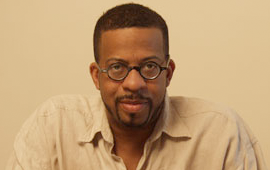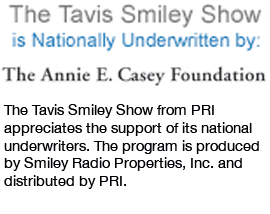Friday, August 23 – Friday, August 30
 Belva Davis
|
Fifty years ago this week, Dr. Martin Luther King, Jr. presented his famous “I Have a Dream” speech from the steps of the Lincoln Memorial. Since that hot August day in 1963, Americans from all walks of life have pondered, criticized, praised, and appreciated the power of King’s words. Last week, we brought you the first hour of our March on Washington special. Today, we continue with the second hour of our roundtable discussion with a new panel of journalists who covered the march, providing a different perspective of the event. We’re joined by Emmy-winning Bay Area anchor Belva Davis, veteran journalist and reporter Bill Kovach, and David Garrow, a Presidential Distinguished Professor at Emory University School of Law. Kovach and Garrow are also editors of the new anthology book set called, “Reporting Civil Rights”, published by the non-profit, Library of America. |
“The Tavis Smiley Show” – “The March on Washington, 50th Anniversary” (Hour Two)
|
50 years ago this week, The March on Washington for Jobs and Freedom took place in Washington, D.C. Today, we’re going beyond the speech and discuss the impact, legacy, and unfinished business of the march, from a media perspective.
|
“The March on Washington, 50th Anniversary” (Hour Two) – Part One
 Belva Davis |
Emmy-winning and longtime Bay Area anchor Belva Davis offers a West Coast perspective of the march. King biographer and Emory University School of Law professor Dr. David Garrow contextualizes the civil rights era leading up to the August 28 event. |
“The March on Washington, 50th Anniversary” (Hour Two) – Part Two
 Bill Kovach |
Bill Kovach, a veteran journalist, former “New York Times” reporter, and former editor of the “Atlanta Journal-Constitution”, reflects on how the march has been portrayed, represented, and understood in the media, by journalists, and in popular culture. |
“The March on Washington, 50th Anniversary” (Hour Two) – Part Three
 David Garrow |
David Garrow, Belva Davis, and Bill Kovach offer their final thoughts, as we conclude our two-part commemoration of the March on Washington. |
“The Tavis Smiley Show” – “The March on Washington, 50th Anniversary” (Hour One)
|
As the nation marks the 50th anniversary of the March on Washington, it’s the first hour of our two-part special as longtime CBS anchor Dan Rather, King historian Dr. Clayborne Carson, and Indiana University professor Dr. Carol Polsgrove discuss the impact, legacy, and unfinished business of the historic event.
|
“The March on Washington, 50th Anniversary” (Hour One) – Part One
|
Dan Rather, the anchor and managing editor of “Dan Rather Reports” on AXS TV, discusses the significance of Dr. King’s speech, its historical context, and the media’s role in the movement. |
“The March on Washington, 50th Anniversary” (Hour One) – Part Two
|
Dr. Clayborne Carson, a noted history professor at Stanford and the founding director of the MLK Research and Education Institute, shares his thoughts on the March. |
“The March on Washington, 50th Anniversary” (Hour One) – Part Three
|
Indiana University professor Dr. Carol Polsgrove describes the atmosphere surrounding the civil rights movement and the March on Washington. Dan Rather and Dr. Clayborne Carson also offer final thoughts. |
Friday, August 16 – Friday, August 23
 Dan Rather
|
This year marks the 50th anniversary of the March on Washington for Jobs and Freedom, which took place on August 28, 1963. On that day, more than 200,000 Americans gathered in Washington DC for a political rally that became a key moment in the struggle for civil rights in the United States. It was also when Dr. King inspired millions across the world with the delivery of his famous “I Have a Dream” speech on the steps of the Lincoln Memorial. Today’s program is the first hour of our two-part series commemorating the historic event. Legendary anchor Dan Rather, King historian Dr. Clayborne Carson, and Indiana University professor Dr. Carol Polsgrove discuss the impact, legacy, and unfinished business of the March on Washington. Dr. Carson and Dr. Polsgrove are also editors of the new anthology book set called “Reporting Civil Rights”, published by the non-profit Library of America.
|







